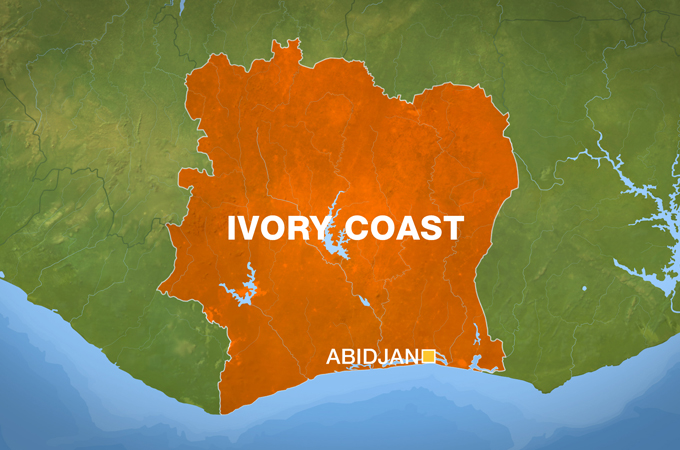Ivory Coast polls see low voter turnout
The country’s first legislative elections in a decade pass without incident, but are overshadowed by opposition boycott.

| Al Jazeera’s Nazanine Moshiri reports from the Ivorian capital, Abidjan |
Polls have closed in Ivory Coast’s legislative elections amid reports of low voter turnout that were, at least partially, spurred by boycott.
The parliamentary vote held on Sunday was the country’s second national poll in 11 years and comes a year after disputed presidential elections ushered in months of violence.
More than five million voters were expected to cast their ballots in an an election where 1,100 candidates vied for 255 legislative seats.
The vote, however, was boycotted by former Ivory Coast president Laurent Gbagbo‘s party, the Ivorian Popular Front (FPI), over allegations of unfair treatment of his supporters.
Voter turnout was slow in places such as Yopougon, a pro-Gbagbo stronghold in the commercial capital Abidjan, where officials said only an estimated 100 of 400 registered voters cast ballots. Even in areas supportive of Allasane Ouattara, the Ivorian president, turnout was thin.
A spokesman for Gbagbo’s party estimated that as few as 10 per cent of voters participated in the elections on Sunday.
The UN and local officials reported no major incidents by the time polls closed.
ICC trial
Ivorian elections have been overshadowed by the ongoing trial of Gbagbo who is being held by the International Criminal Court (ICC) at The Hague.
 |
It is alleged that his forces committed mass murder and rape after he rejected his loss in last year’s presidential election.
Baba Coulibaly, electoral commission spokesman, said polling stations closed on time and added that polls would continue to accept voters who were still in line.
Ouattara voted in Abidjan around midday and called on Ivorians to go to the polls.
“In my view, this election is essential because for the past 11 years, Ivorians have not been able to vote for their representatives in parliament,” Ouattara said.
“Today they had a possibility to do so, so they should not miss this opportunity.”
‘Politically strategic move’
Gbagbo’s party boycott was seen as a strategic move. For months the party has said that it would only participate if the government freed the former president and his allies. But the boycott will likely benefit candidates loyal to Ouattara, who took power in April with the help of French and UN forces.
The bigger issue, Gbagbo loyalists say, is the growing sense of “victor’s justice” over Gbagbo’s treatment. Prosecutors at the war crimes court said about 3,000 people died in violence by both sides after Gbagbo refused to concede.
Rights groups and the UN have also said that crimes were committed by both sides, but no member of Ouattara’s side has been charged.
Sylvain Miaka Ouretto, who now leads the FPI called the elections a “masquerade organised by the powers in place”, describing them as “not inclusive”.
Gbagbo’s transfer to the ICC has also given the party a justification to turn its back on the reconciliation process, which was launched formally in September.
The majority of Gbagbo’s entourage are in prison or under house arrest, including his ministers and the former first lady.
Tens of thousands of his supporters are still in refugee camps in neighbouring Ghana and Liberia where they fled after Ouattara’s forces seized Abidjan.